| Author |
 Topic Search Topic Search  Topic Options Topic Options
|
DallasBryan 
Forum Senior Member


Joined: November 23 2004
Location: United States
Status: Offline
Points: 3323
|
 Posted: February 12 2005 at 20:28 Posted: February 12 2005 at 20:28 |
|
THIS IS PROGRESSIVE ROCK in the 70's!
1. SYMPHONIC ROCK
Italy (approximately 1972-77)
Arguably one of the most successful schools
influenced by the stylistic pioneers of the mid to late
60s/70s. Premiata Forneria Marconi, Banco del
Mutuo Soccorso, Le Orme, Latte E Miele, Museo
Rosenbach etc.
France (70s-early 80s)
There are at least two threads of the symphonic
school in France's impressive musical heritage.
Some bands were influenced by the British pioneers
such a Yes and King Crimson while others were
more influence by the "theatrical rock" of Genesis.
The former include Atoll, Pulsar, and Carpe Diem.
The latter, categorized as such due to their use of
costumes and stage presence, include Ange and
Mona Lisa.
2. PROGRESSIVE ROCK
Art Rock
Another term often used interchangeably with
progressive rock, art rock implies rock with an
exploratory tendency. Another definition of "art rock"
describes music of a more mainstream
compositional nature, tending to experimentation
within this framework. Early Roxy Music, David
Bowie, Brian Eno's 70s rock music, and Be Bop
Deluxe serve as examples of the latter definition.
Blues Rock
Blues rock evolved into more experimental
permutations from John Mayall, Cream and the
Yardbirds to Steamhammer, Colosseum,
Groundhogs, Tonton Macoute, and Bakerloo, due
largely to the incorporation of psychedelic and jazz
influences into the music. A similar evolution is
encountered in the United States with bands like the
Allman Brothers and Crosby, Stills, Nash and Young.
Krautrock(70s-mid 80s)
A term that usually describes the highly influential
German rock of the early 70s, especially bands
associated with the Ohr, Brain, Pilz, and Kosmische
music labels. The varying styles falling under this
umbrella were influenced by both German
experimental electronic music and the psychedelic
rock and beat of the late 60s. These range from the
Ohr and Kosmische label's wild tangle of acid rock
and electronica such as Ash Ra Tempel, Cosmic
Jokers, Guru Guru and Tangerine Dream to the
more rhythmically insistent, post-psychedelic
experimentations of Faust, Neu, Kraftwerk and Can.
Proto-Progressive
Where late 60s psych ends and early 70s
progressive rock begins is often referred to as
proto-progressive, due to the music's embryonic
similarities to the earliest progressive rock groups.
While this is accurate as far as the definition of
"proto-" goes, another common definition of this term
is sort of as "almost progressive," artists which
might bear some resemblance to the genre, but are
not commonly considered as such. Some widely
varying examples of what might be considered
"proto-prog" are The Beatles circa Magical Mystery
Tour and Sgt. Peppers ..., Tommy and Quadrophenia
period Who, Procol Harum, Traffic, early Deep Purple
and Uriah Heep.
Psychedelic (Rock)
A major precursor to the progressive rock of the 70s
is the psychedelic rock of the late 60s, which is too
vast a field to cover in detail here yet is intertwined
inextricably with its musical offspring. This
genre/qualifier covers a large amount of territory in
common with progressive rock and mostly concerns
itself with a mind-expanding approach associated
with hallucinogenic and surreal imagery and its
equivalent musical relationship. Bands falling within
this style are often cross-genre (see VIII.
Unclassified for examples) and vary from the early
pioneers such as the Beatles, Jimi Hendrix,
Jefferson Airplane, Pink Floyd, Country Joe & The
Fish, Small Faces, and Strawberry Alarm Clock.
3. BY COUNTRY
Britain (late 60s to mid 70s)
There were many groups considered "progressive
rock" at the dawn of the 70s which probably do not fit
at all into most of the above schools. Many of the
groups were associated with pioneering labels like
Vertigo, Deram, Dawn, Transatlantic, Neon, Harvest,
Charisma and Island. There were rock groups
exploring eastern stylings such as Marsupilami,
Samurai, Jade Warrior and East of Eden and heavy
post psychedelic rock like High Tide and Jody Grind.
Some of the more guitar jam oriented groups like
Man and Wishbone Ash explored lengthy rock
ruminations without succumbing to the highly
structured music of the time. Bands such as Jethro
Tull, Van Der Graaf Generator and Family were
defined by their vocalist's signature, some of them
achieving great success especially in mainland
Europe. Other important groups of the era include
the Strawbs, Raw Material, Second Hand, and
Gnidrolog.
Holland (early 70s)
Dutch musicians also exhibited strong tendencies
towards new forms of rock, influenced immediately
by the psychedelic rock from across the channel and
the Atlantic. The country's rock scene had a head
start with one of the earliest psychedelic/progressive
groups Group 1850. Focus became quickly notable
for its combination of rock, classical, and ancient
music. Other important Dutch progressives of the
era included Golden Earring, Alquin, Solution and
Finch, all of whose stylistic tendencies don't verge
overwhelmingly in any one direction.
Denmark (70s)
Denmark had a very fertile but continually ignored
underground whose progressive variations rarely fit
comfortably into any particular style (fusion greats
Secret Oyster are one exception). Perhaps the most
unrecognized scene in progressive rock.
Sweden (70s to present)
The Swedish rock underground has always
produced a wide variety of high-quality music. There
were several bands in the 70s that paralleled that of
Germany's Kosmiche music, such as Algarnas
Tradgard, International Harvester, Flasket Brinner,
and Trad Gras och Stenar. The Silence label in
Sweden was notable for introducing many rock
bands (including several of the above) who
displayed a certain traditional touch such as early
Samla Mammas Manna, Kebnekaise, Ragnarok,
and Triangulus. A noteable modern practitioner of
this notably Swedish rock style is Grovjobb.
France (70s)
Almost like there was a delay on the influences from
overseas, France developed a surprisingly
innovative rock scene in the early 70s that still
remains a separate entity from all the various styles
of music the French have added to over the years.
4. AVANT ROCK
Rock In Opposition (RIO)
Chris Cutler, original member of the British musical
collective Henry Cow and the man behind the
scenes at Recommended Records in England, had
this to say about RIO: "RIO short for Rock In
Opposition was named to give some identity to a
festival we (Henry Cow) ran in London in the Spring
of 1978 ... The only groups ever involved were: Henry
Cow, Samla Mammas Manna (Sweden), Etron Fou
Leloublan, (France) Stormy Six (Italy), Univers Zero
and Aqsak Maboul (Belgium), Art Zoyd (France) and
Art Bears."
5. JAZZ FUSION
Canterbury
This genre, named by the town in Kent, England
where the musicians in the mid-60s group The
Wilde Flowers hailed from (a band which was
progenitor to both the Soft Machine and Caravan),
drew on varying elements of classical architecture.
Although the Soft Machine and Caravan were the
only groups to originate from Canterbury itself. The
styles of the artists adopted under the Canterbury
genre varied from the psychedelic whimsy of
Caravan, the increasingly jazz-rock Soft Machine, and
the sly song structures of Kevin Ayers onto some of
the most intricate rock ever created in Hatfield and
The North and National Health. Canterbury music
also overlapped with British jazz-rock (see below),
space rock pioneers Gong, classical rock in Egg,
RIO forefathers Henry Cow and melodic progressive
group Camel.
Zeuhl
The term Zeuhl came from the genre's progenitor
Magma as part of the band's invented language
meaning "celestial." Magma brought in a wide
number of influences from Orff, Stravinsky and
Bartók to Coltrane and R&B to create one of the most
influential and original progressive rock styles of the
time. Bands that fall under the Zeuhl rubric vary from
offshoot bands such as Weidorje and Zao.
6. PROGRESSIVE ELECTRONIC ROCK
Germany (70s)
The advent of electronic music in Germany,
especially through the work of Stockhausen and the
influence of the psychedelic era, was largely a
product of the krautrock legacy. The most famous
progenitors of progressive electronic rock music are
Edgar Froese (Tangerine Dream, solo), Conrad
Schnitzler (Tangerine Dream, solo), Klaus Schulze
(Ash Ra Tempel, Tangerine Dream, solo), and
Manuel Gottsching (Ash Ra Tempel, Ashra, solo), all
who began their formative careers on the genre's
preliminary label, Ohr. These musicians evolved with
the burgeoning technology of the era to become four
of the most prolific and influential artists of their time,
all changing face over the course of time to cover an
unequalled amount of territory. This primary school
of electronic music was the dominant influence for
most of the other schools in this section.
Berlin School
Music typified as Berlin School is inherited from the
70s German pioneers in the style, especially that of
Tangerine Dream and Klaus Schulze. It is
recognizable by its prevalent use of sequencers to
give the music a rhythmic pulse behind a layering of
electronic atmospheres. Berlin School music is the
dominant European style even today, from its roots
through its myriad of modern progenitors, from the
completely derivative to the far removed. Early Berlin
School artists include Wolfgang Bock and Albert Von
Deyen.
7. UNCLASSIFIED
Several roads from the previous sections lead to the
Unclassified. In rock, jazz, folk and electronic, the
groups considered avant-garde (avant-rock,
avant-jazz and avant-folk) verge in the direction of the
unclassified as the conventions of the operative
music are thrown aside. Some excellent examples
of the Unclassified where all these musics meet
include Pierrot Lunaire's Gudrun, a place where no
particular style is the mainstay and elements are
juxtaposed in unusual ways in a strange, alchemic
cocktail. Älgarnas Trädgård's Framtiden Är Ett
Svävande Skepp, Förankrat i Forntiden is a similar
hybrid, although resulting from the psychedelic
school years earlier and covering enough influences
to make any single reference point invalid by default.
Italian pop artist Franco Battiato spent a long
number of years in the 70s creating an unparalleled
stream of albums that seemed to flirt with just about
every genre mentioned here so far, from the strange
electronic and folk experimentations of Foetus to the
later minimalist electronic works of the mid to late
70s.
I see in the 80s only a small amount of british
progressive rock left and the germans carrying on
with progressive electronic rock a little stronger into
the mid 80s. South America being pretty healthy.
Remnants here and there.
Edited by DallasBryan
|
 |
Wizard/TRueStar 
Forum Senior Member

Joined: October 04 2004
Location: United States
Status: Offline
Points: 675
|
 Posted: February 13 2005 at 13:53 Posted: February 13 2005 at 13:53 |
Gasp............
Gabriel III is the oly thiung I have heard all the way through on this list. I love it anyways!!!!!!!!
|
 |
arcer 
Prog Reviewer

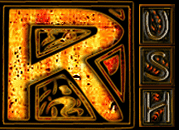
Joined: September 01 2004
Location: United Kingdom
Status: Offline
Points: 1239
|
 Posted: February 13 2005 at 13:56 Posted: February 13 2005 at 13:56 |
none of the above
three words
Rush - Moving Pictures  
|
 |
Guests 
Forum Guest Group

|
 Posted: February 13 2005 at 16:36 Posted: February 13 2005 at 16:36 |
|
Ever heard of this band called King Crimson?
|
 |
Emperor 
Forum Senior Member

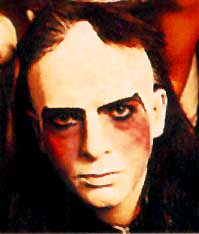
Joined: December 08 2004
Location: Russian Federation
Status: Offline
Points: 480
|
 Posted: February 14 2005 at 03:34 Posted: February 14 2005 at 03:34 |
 DallasBryan wrote: DallasBryan wrote:
THIS IS PROGRESSIVE ROCK in the 70's!
1. SYMPHONIC ROCK
Italy (approximately 1972-77) ...
|
What a great article, Bryan,
Thank you! 
|
|
I Prophesy Disaster...
|
 |
Aaron 
Forum Senior Member

Joined: April 08 2004
Location: United States
Status: Offline
Points: 395
|
 Posted: February 14 2005 at 21:57 Posted: February 14 2005 at 21:57 |
 DallasBryan wrote: DallasBryan wrote:
If Pendragon, Ayreon, Porcupine Tree, Dream
Theatre, Anglagard are so great why are they not
filling up stadiums like the bands before them did.
They arent on radio, because the old bands are
better, on and on and on.
Happy Trailz |
are you being serious
Aaron
|
 |
Garion81 
Special Collaborator

Honorary Collaborator
Joined: May 22 2004
Location: So Cal, USA
Status: Offline
Points: 4338
|
 Posted: February 14 2005 at 22:30 Posted: February 14 2005 at 22:30 |
 Aaron wrote: Aaron wrote:
 DallasBryan wrote: DallasBryan wrote:
If Pendragon, Ayreon, Porcupine Tree, Dream
Theatre, Anglagard are so great why are they not
filling up stadiums like the bands before them did.
They arent on radio, because the old bands are
better, on and on and on.
Happy Trailz |
are you being serious
Aaron
|
Dallas,
Let me ask you a question. Why were the early British Progressive bands sucsseful in the US at at all? If you can answer this question without being sarcastic I will answer yours.
|

"What are you going to do when that damn thing rusts?"
|
 |
Possessed 
Forum Senior Member


Joined: July 10 2004
Location: United States
Status: Offline
Points: 430
|
 Posted: March 02 2005 at 14:16 Posted: March 02 2005 at 14:16 |
|
King Crimson - Discipline
|
 |
Certif1ed 
Special Collaborator


Honorary Collaborator
Joined: April 08 2004
Location: England
Status: Offline
Points: 7559
|
 Posted: March 02 2005 at 15:25 Posted: March 02 2005 at 15:25 |
DB - you are so wrong with regard to most Neo-prog; it is clear to me that the trees are interfering with your view of the woods.
I'm glad that you are promoting music that many of us have not listened to (or not listened to much), but your perceptions of Neo-prog seem born of some kind of blind obsession.
Imitations? In The Enid, Twelfth Night or Marillion? Where?
These bands gave prog the jumpstart it needed after running out of steam so quickly (5-6 years is not a long time for a genre to flourish) - so credit where it's due.
But I must hit you again on the "recycled" point. Give me some examples so I can understand - which Genesis track does "Forgotten Sons" sound like? (for example). How do The Enid sound like Yes or ELP? Which band does Twelfth Night remind you of most?
...I REALLY don't understand your point on this. 
|
 |
Reed Lover 
Forum Senior Member

Joined: July 16 2004
Location: Sao Tome and Pr
Status: Offline
Points: 5187
|
 Posted: March 02 2005 at 15:35 Posted: March 02 2005 at 15:35 |
 Certif1ed wrote: Certif1ed wrote:
But I must hit you again on the "recycled" point. Give me some examples so I can understand |
So you thought that your bolts and your locks would keep me out
You should have known better after all this time
You’re gonna pay in blood for all your vicious slander
With your ugly pale skins and your putrid blue eyes
Why should I feel pity when you kill your own and feel no shame
God’s on my side, sure as hell
I’m gonna take no blame
I’m gonna take no blame
I’m gonna take no blame
So you say you believe in all of mother nature’s laws
You lust for gold with your sharpened knives
Oh when your hoards are gathered and your enemies left to rot
You pray with your bloodstained hands at the feet of your pagan gods
Then you try to place the killer’s blade in my hand
You call for justice and distort the truth
Well I’ve had enough of all your pretty pretty speeches
Receive your punishment
Expose your throats to my righteous claws
And let the blood flow, and [let the blood flow], flow, flow, flow.

|
|
|
 |
DallasBryan 
Forum Senior Member


Joined: November 23 2004
Location: United States
Status: Offline
Points: 3323
|
 Posted: March 02 2005 at 18:26 Posted: March 02 2005 at 18:26 |
 Certif1ed wrote: Certif1ed wrote:
DB - you are so wrong with
regard to most Neo-prog; it is clear to me that the
trees are interfering with your view of the woods.
I'm glad that you are promoting music that many of
us have not listened to (or not listened to much), but
your perceptions of Neo-prog seem born of some
kind of blind obsession.
Imitations? In The Enid, Twelfth Night or Marillion?
Where?
These bands gave prog the jumpstart it needed
after running out of steam so quickly (5-6 years is
not a long time for a genre to flourish) - so credit
where it's due.
But I must hit you again on the "recycled" point.
Give me some examples so I can understand -
which Genesis track does "Forgotten Sons" sound
like? (for example). How do The Enid sound like Yes
or ELP? Which band does Twelfth Night remind you
of most?
...I REALLY don't understand your point on this.
 |
sorry certified guess its a generational thing, dont
know. I used to have the best Marillion recordings
and couldnt help but here genesis sounding and
phil collins'ish vocals. And the anguished vocals do
no more for me than Peter Hammils. I have tried
many newer prog bands only to be let down, for me.
I will probably pick up on the Tool, Radiohead, Pain
of Salvation, Opeth thing sometime but it seems
futile to leave the 70s to mid 80s as things just dont
interest me or they are too much for my ancientness.
I may find something that I think is good but it wont
be something I listen to much because its would be
reaching for me to bang along with my walker!
Ill get to it sometime but the 100s that I have heard
so far, I own none of now, they didnt do anything for
me. Even Anglagard I listened to there 2 best over
and over and over and didnt find anything that I just
drooled over. Cant say that about the best 70s
continental euro bands. Hey I dont even have
anymore PFM, Banco or Locanda because too many
vocals in italian spoils it for me. I appreciate the
italian genius in the musical setting but I didnt listen
to them when I had them. Only the ones that omit the
vocals I enjoy and immensely.
Edited by DallasBryan
|
 |
Cancion del sur 
Forum Groupie


Joined: November 11 2004
Location: Chile
Status: Offline
Points: 67
|
 Posted: March 02 2005 at 23:07 Posted: March 02 2005 at 23:07 |
alturas de machu pichu- los jaivas 
|
 |
James Lee 
Special Collaborator

Honorary Collaborator
Joined: June 05 2004
Status: Offline
Points: 3525
|
 Posted: March 03 2005 at 01:48 Posted: March 03 2005 at 01:48 |
I may have missed the post where DB justified not including King Crimson's 80s recordings. I would have voted for Discipline, and it seems many here would agree.
But I voted for Art of Noise, anyway. Partly because I like it a lot, I think it's a landmark album, and partly just because I'm a contrary sort of bastard. 
|
|
|
 |
Certif1ed 
Special Collaborator


Honorary Collaborator
Joined: April 08 2004
Location: England
Status: Offline
Points: 7559
|
 Posted: March 03 2005 at 03:27 Posted: March 03 2005 at 03:27 |
 DallasBryan wrote: DallasBryan wrote:
sorry certified guess its a generational thing, dont
know.
No need to apologise - especially to an evil git like me...
I'm a bit disappointed that you were generalising - I thought you'd listened hard and come to a rational decision.
I used to have the best Marillion recordings
and couldnt help but here genesis sounding and
phil collins'ish vocals.
I suppose I'll have to agree to disagree as usual - to me, Fish has a unique voice with a hard edge, impassioned quality and Scottish tang that neither Gabriel nor Collins possess. I suppose the comparison is made because there's simply nothing else to compare him to - but I can spot Fish's vocal sound a mile off; it's easily as distinctive as PG or PC.
And the anguished vocals do
no more for me than Peter Hammils. I have tried
many newer prog bands only to be let down, for me.
I know where you're coming from with Peter Hammill - sometimes the vocal gymnastics seem highly inappropriate, or he keeps the passion at too high a level for too long. Fish, OTOH seems to have an instinctive knowledge of where to add colour and where to sustain drama.
Once you've got over his tendency to strain at the high notes, and realised that it's all intense emotion - about as real as you can get - Fish can send the shivers up and down the spine like nothing. Admittedly, that might be fanboy speak... 
Out of all the Marillion albums, "Script for a Jester's Tear" is the one that consistently surprises me every time I hear it - I recommend as many revisits as possible to that album - and I would also recommend "Fact and Fiction" by Twelfth Night (although in lower doses). If you don't already have a copy of "In The Region of the Summer Stars" by the Enid, then get that above all others if you like intelligent symphonic music. It's nothing short of spectacular - especially if, as you seem to imply, you prefer instrumental to vocal music.
I will probably pick up on the Tool, Radiohead, Pain
of Salvation, Opeth thing sometime but it seems
futile to leave the 70s to mid 80s as things just dont
interest me or they are too much for my ancientness.
If you haven't checked out "Kid A" or "Amnesiac", then do so - I think you might like them, especially if you approach both albums from a Can/Czukay angle. Not sure about the other bands - prog metal doesn't do too much for me in general, although I have heard much to like in that genre. Tool and PoS leave me a bit cold, and I have yet to listen to the one Opeth album I own...
I may find something that I think is good but it wont
be something I listen to much because its would be
reaching for me to bang along with my walker!
Ill get to it sometime but the 100s that I have heard
so far, I own none of now, they didnt do anything for
me. Even Anglagard I listened to there 2 best over
and over and over and didnt find anything that I just
drooled over. Cant say that about the best 70s
continental euro bands. Hey I dont even have
anymore PFM, Banco or Locanda because too many
vocals in italian spoils it for me. I appreciate the
italian genius in the musical setting but I didnt listen
to them when I had them. Only the ones that omit the
vocals I enjoy and immensely.
If you really want to hear a neo-prog band that sound like Genesis, track down a copy of "Tales from the Lush Attic" by IQ. Some of the keyboard sounds are very dodgy indeed, but there is some superb original work on there too, if you stick with it, and it is a good place to find the best side of neo-prog. It's true that there's a lot of rubbish in the genre, but the good stuff is utterly brilliant and not worth missing out on, IMHO.
I like much of PFM's output tremendously - tho' I must admit I try to blot out the vocals. The music makes the effort worthwhile - something I never found with Locanda. Banco are still in my "Will listen to one day" pile..., and Anglagard were a great disappointment to me - I heard so much praise, then I heard this odd assortment of bits and bobs tacked together with awful vocals.
I would still recommend "Script..." and "Fugazi" above all other neo-prog for anyone who doesn't "get it" (well above "Misplaced Childhood") - but don't expect to get it from one or two listens, as it's definitely an acquired taste.
I'm still getting it 22 years down the line, and it tastes better every time... 
|
|
 |
DallasBryan 
Forum Senior Member


Joined: November 23 2004
Location: United States
Status: Offline
Points: 3323
|
 Posted: March 03 2005 at 03:41 Posted: March 03 2005 at 03:41 |
|
I would agree that Script and Fugazi I liked better and
would say they are good albums. Probably not as
unoriginal as I am always raving about the genre as
a whole. Cant recall everything about them but I do
remember they were enjoyable, under the
microscope they were slighty outside of my best of
prog classification, maybe top 100, but I like several
styles of music and they fall just outside of
necessary for my tastes. If someone asked I would
direct them to give those two a try.
Radiohead was not my bag on the tauted OK
Computer, so I blew them off. I listened to clips of
Kid A and heard something much better, I think. Tool
sounds interesting but a little overpowering in the
clip I listened to.
Understand that Gentle Giant and King Crimson are
not great great to me either. Though I hear the
complex time changes and individual
omnidirectional soloing it doesnt do much for me
until they are able to create an intercourse with their
instrumentals. GG does so more often but the start
stop timing breaks my interest as I prefer music for
enjoyment verses manual dexterity.
Sure Larks Tongue and Octopus as great, but its
been 20 years since I cared.
Edited by DallasBryan
|
 |
Dragon Phoenix 
Forum Senior Member

Joined: August 31 2004
Status: Offline
Points: 1475
|
 Posted: March 03 2005 at 03:57 Posted: March 03 2005 at 03:57 |
|
Of the ones listed, Peter Gabriel 3. Although I would also prefer the first Marillion albums, as well as PG4.
The real prog materpiece of the eighties?
Kate Bush - Hounds of love
|
 |
Blacksword 
Prog Reviewer

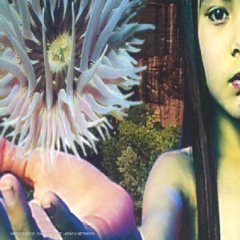
Joined: June 22 2004
Location: England
Status: Offline
Points: 16130
|
 Posted: March 03 2005 at 04:22 Posted: March 03 2005 at 04:22 |
Best 80's prog album IMO:

Nothing tops it, but its closely followed by:
Every other 80's Rush album except Power Windows..and..
Script for a jesters tear - Marillion
Fugazi - Marillion
Clutching at Straws - Marillion
Duke - Genesis
Once around the world - IT Bites
The Spell - The Enid
|
|
Ultimately bored by endless ecstasy!
|
 |
sigod 
Forum Senior Member

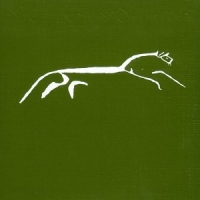
Joined: September 17 2004
Location: London
Status: Offline
Points: 2779
|
 Posted: March 03 2005 at 04:48 Posted: March 03 2005 at 04:48 |
|
|
|
I must remind the right honourable gentleman that a monologue is not a decision.
- Clement Atlee, on Winston Churchill
|
 |
Reed Lover 
Forum Senior Member

Joined: July 16 2004
Location: Sao Tome and Pr
Status: Offline
Points: 5187
|
 Posted: March 03 2005 at 06:13 Posted: March 03 2005 at 06:13 |
 Blacksword wrote: Blacksword wrote:
Best 80's prog album IMO:

Nothing tops it, but its closely followed by:
Every other 80's Rush album except Hold Your Fire..and..
|
Me too! I'll have some of that... 
|
|
|
 |
Prog_head 
Forum Senior Member

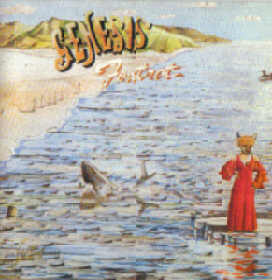
Joined: February 24 2005
Location: United Kingdom
Status: Offline
Points: 109
|
 Posted: March 03 2005 at 08:14 Posted: March 03 2005 at 08:14 |
The best 80's Prog:
Marillion : Script for a jester's tear, Fugazi, or Rush Moving Pictures
|
 |
/PAlogo_v2.gif)
/PAlogo_v2.gif)


